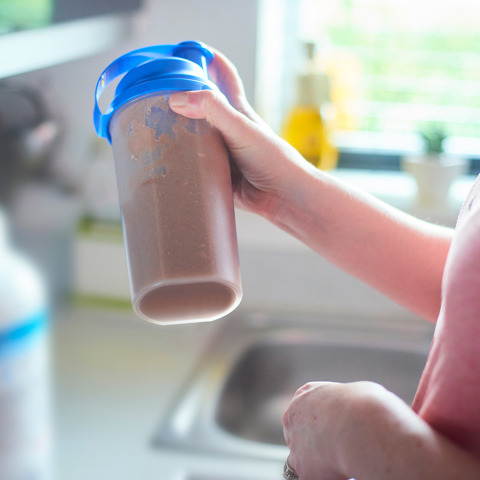
“Total diet replacement” programme reports promising results for type 2 diabetes remission
NHS weight loss programme study can reverse the symptoms of type 2 diabetes.
Research on the impact of a “total diet replacement” has found people taking part have been able to reverse the type 2 diabetes – effectively putting the condition into remission.
A study looked at people in England aged 18–65 years and diagnosed with type 2 diabetes in the last 6 years referred to the NHS Type 2 Diabetes Path to Remission Programme since it was launched in 2019.
From 1st September 2020, and 31st December 2022, 7,540 people were referred to the programme that provides a low calorie, total diet replacement treatment for people who are living with type 2 diabetes and obesity or who are overweight.
The programme is based on research showing that a three-month specially formulated diet comprising of total diet replacement products including soups and shakes, followed by healthy lifestyle support helped people living with type 2 diabetes and obesity or who are overweight to lose over 10kg in weight, improve their blood glucose levels, reduce diabetes-related medication and, in almost half of participants, put their type 2 diabetes into remission.
Results of an evaluation study on the programme recently published in The Lancet Diabetes & Endocrinology reported that almost one third (32%) of those completing the programme had remission of the condition. This was measured by a weight loss of 14.4%, or 15.9kg.
Also known as the “shake and soup diet programme”, the diet plan is funded by the NHS at no cost to people recommended to participate from their GPs.

The programme is open to people aged 18 and 65; diagnosed with type 2 diabetes within the last six years; and have a body mass index (BMI) over 27 kg/m2 (if from white ethnic groups) or over 25 kg/m2 (if from black, Asian and other ethnic groups).
Eligible participants will be offered low calorie, total diet replacement products including soups and shakes consisting of 800 to 900 kilocalories a day for 12 weeks. During this time, participants will replace all normal meals with these products.
Participants will also be closely supported by their local GP practice – for example, if medicines need to be changed.
Dr Clare Hambling, NHS National Clinical Director for Diabetes and Obesity, said: "Obesity is one of the biggest threats to health in the UK and will be one of the biggest and most costly challenges for health systems globally, so seeing such encouraging outcomes from our programme shows that obesity can be tackled head-on."
DRWF-funded researcher Dr Nerys Astbury, Associate Professor of Diet and Obesity at the University of Oxford, said: "We don’t know how long the remission will last, or how achieving remission can affect the risk of developing diabetes in the future. But we do know that losing weight has huge health benefits in all groups, particularly people living with type 2 diabetes."
The report on the study findings said: “The increasing prevalence of type 2 diabetes poses risks to the wellbeing of individuals and the health of populations, representing a major burden on health-care services. Until recently, type 2 diabetes had been considered a lifelong progressive condition. Elucidation of the potentially reversible nature of type 2 diabetes was achieved by documenting the underlying pathophysiological processes before and after dietary weight loss.
“Subsequent randomised controlled trials have shown that total diet replacement using a micronutrient-complete but low-energy diet, typically in the form of soups and shakes, can lead to marked weight loss and long-term maintenance of remission of diabetes, and has been shown to be an acceptable treatment option for some people with type 2 diabetes.
“It is unclear, however, whether such interventions can be successfully delivered at scale in real-world settings.”
The report concluded: “For those with two HbA1c measurements recorded at the applicable timepoints, 27% of participants who undertook the programme and 32% of the subgroup who completed the programme had remission of type 2 diabetes at 12 months, showing that people with type 2 diabetes can reach remission with this approach outside of research settings.”
Read the report in The Lancet Diabetes & Endocrinology
Read more about the NHS Type 2 Diabetes Path to Remission Programme
Read more about type 2 diabetes
I would like to make a regular donation of
I would like to make a single donation of
There are lots of ways to raise money to support
people living with all forms of diabetes.
Bake, Swim, Cycle, Fly ... Do It For DRWF!
Fundraise with us
Recent News


